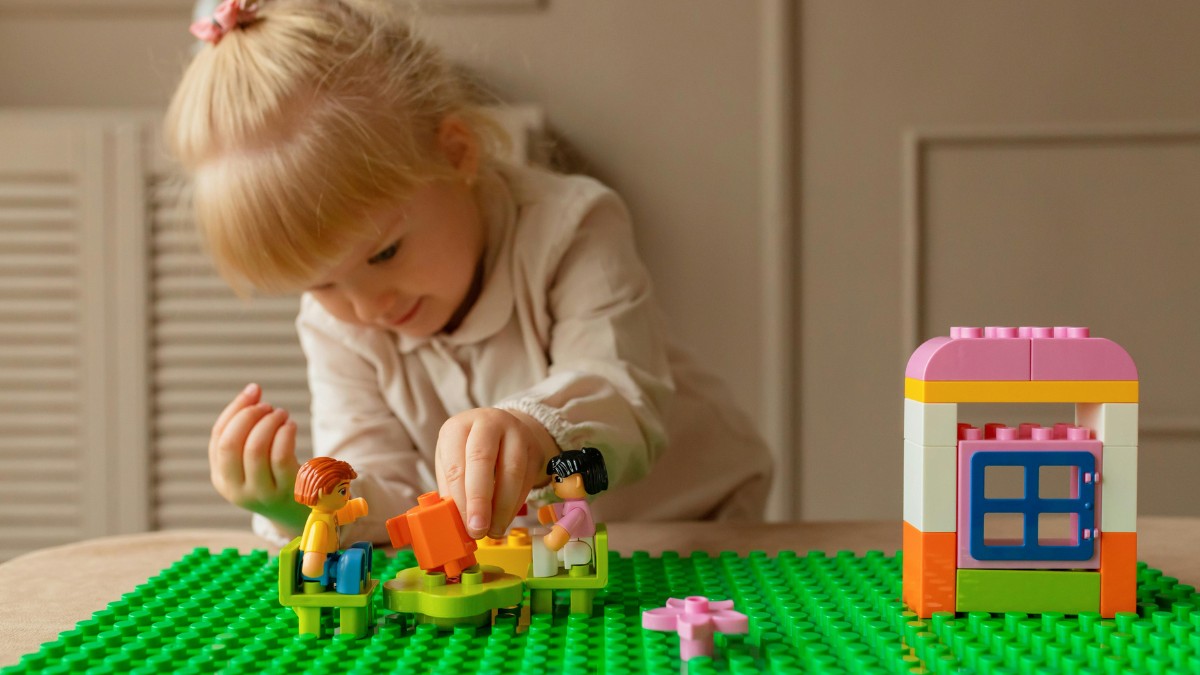Master Daily Living Skills Through ABA Therapy
Discover how ABA therapy for daily skills enhances communication, self-care, and social abilities effectively.

Master Daily Living Skills Through ABA Therapy
Understanding ABA Therapy

What is ABA Therapy?
Applied Behavior Analysis (ABA) therapy is a scientific approach that focuses on understanding and modifying behavior. It utilizes principles of learning and behavior to help individuals, particularly those with developmental disabilities, acquire essential skills and improve their quality of life. ABA is widely recognized for its effectiveness, especially in educational settings and therapeutic environments.
ABA therapy follows a systematic process where behaviors are assessed, measured, and then targeted for change. This data-driven approach allows therapists to identify specific behaviors that need improvement and develop strategies that facilitate skill development.
The Principles of ABA Therapy
ABA therapy is based on several foundational principles that guide its practice. These principles help ensure that therapeutic interventions are effective and targeted. Here are some key principles:
The utilization of these principles allows ABA therapists to create impactful programs that facilitate the acquisition of daily living skills in individuals receiving therapy. This approach emphasizes the importance of creating personalized plans that reflect individual strengths and areas for growth.
ABA Therapy and Daily Skills

The Importance of Daily Living Skills
Daily living skills are essential for promoting independence and enhancing the quality of life for individuals. These skills encompass a range of activities that individuals need to perform on a daily basis, such as self-care tasks, communication, and social interactions. Mastery of these skills can lead to increased confidence and lower reliance on caregivers.
The significance of daily living skills can be highlighted through the following aspects:
How ABA Therapy Targets Daily Skills
ABA therapy utilizes a structured approach to address and improve daily living skills. Through a combination of assessment, goal-setting, and targeted interventions, ABA therapists can help individuals master specific skills effectively.
- Assessment: Initial assessments identify current skill levels and areas for improvement. This helps in creating a tailored approach.
- Goal-Setting: Specific, measurable, achievable, relevant, and time-bound (SMART) goals are established in collaboration with the individual and caregivers. This fosters focus and motivation.
- Targeted Interventions: ABA employs techniques such as reinforcement, modeling, and prompting to teach daily skills. These methods are designed to encourage desired behaviors and help individuals practice in real-life scenarios.
Through these methods, ABA therapy plays a crucial role in equipping individuals with the necessary tools and strategies to enhance their daily living skills, fostering greater independence and improving their overall quality of life.
Examples of Daily Skills Addressed

ABA therapy plays a vital role in teaching various daily skills that enhance individual independence and overall quality of life. This section will explore three key areas targeted by ABA therapy: communication skills, self-care skills, and social skills.
Communication Skills
Effective communication is essential for engaging with others and expressing needs. ABA therapy focuses on developing skills such as:
ABA methods can be tailored to enhance these skills, facilitating better interactions and understanding.
Self-Care Skills
Self-care skills encompass the daily activities necessary for personal hygiene and overall well-being. ABA therapy targets these skills to promote independence:
By focusing on these self-care skills, individuals can gain confidence and autonomy in their daily routines.
Social Skills
Social skills are critical for navigating interactions in various settings, such as home, school, and community. ABA therapy emphasizes the development of the following competencies:
These social abilities are crucial for establishing connections and fostering positive relationships with others.
Through targeted approaches in these areas, ABA therapy supports individuals in achieving vital daily skills, empowering them to lead more fulfilling lives.
Implementing ABA Therapy

Implementing ABA therapy effectively requires a structured approach that includes collaboration with professionals and setting tailored goals.
Collaborating with ABA Therapists
Collaboration with ABA therapists is essential for successful implementation of therapy aimed at enhancing daily skills. Therapists specialize in identifying individual needs and creating strategies to address these needs efficiently.
Key roles of ABA therapists in collaboration include:
Regular communication between therapists, families, and individuals receiving therapy ensures that everyone is aligned and working towards the same objectives.
Setting Goals and Individualized Plans
Setting clear goals and individualized plans is crucial in ABA therapy. Goals should be specific, measurable, attainable, relevant, and time-bound (SMART). Individual plans should reflect the unique needs and preferences of the individual.
The process of goal-setting involves:
- Identifying Skills: Determine which daily skills require focus based on assessments.
- Defining Objectives: Establish short-term and long-term objectives that align with the individual's capabilities.
- Designing Interventions: Develop strategies and techniques that will facilitate the learning of identified skills.
An example of how goals may be structured is illustrated in the table below:
By regularly reviewing progress and adjusting plans as necessary, ABA therapy can effectively assist individuals in mastering daily skills. This structured approach ensures that therapy remains focused and responsive to individual growth.
Success Stories with ABA Therapy

ABA therapy has shown remarkable success in enhancing daily living skills for individuals of all ages. By utilizing specific techniques and individualized plans, many have experienced significant progress in various aspects of their lives.
Real-Life Examples of Progress
Several case studies can illustrate the effectiveness of ABA therapy in promoting daily skills. Below are examples of individuals who have benefited from this therapeutic approach.
These real-life examples highlight how ABA therapy can address specific challenges faced by individuals and promote significant growth in daily skills.
Transformative Impact on Daily Living
The impact of ABA therapy extends beyond individual skills. It often leads to enhanced overall quality of life. Many individuals have reported greater independence and improved self-esteem. The following table summarizes the transformative effects observed through ABA therapy.
The transformative impact highlights the potential for ABA therapy to significantly enhance daily living skills, leading to a more fulfilling and independent lifestyle for individuals receiving support.
The Future of ABA Therapy
The field of Applied Behavior Analysis (ABA) therapy is continually evolving, adapting to new research findings, technological advancements, and the diverse needs of individuals. This section discusses the changing practices and techniques in ABA therapy as well as the potential benefits for individuals seeking to develop daily skills.
Evolving Practices and Techniques
As ABA therapy progresses, practitioners are integrating several innovative methodologies and tools. This evolution includes:
- Technology Integration
The use of mobile applications and online platforms for tracking progress and implementing ABA strategies is increasing. Such tools can enhance data collection and allow for real-time adjustments in therapy. - Telehealth Services
Remote support through telehealth options is becoming more common. This approach expands access to therapy services, especially in underserved areas. - Holistic Approaches
Incorporating mindfulness and emotional regulation strategies within ABA practices provides a more comprehensive development plan. This aims to address not just behavioral changes but also mental and emotional well-being.
Potential Benefits for Individuals
The advancements in ABA therapy techniques offer numerous benefits for those seeking to improve their daily skills. These include:
- Increased Independence
As individuals learn crucial daily living skills, they often experience greater independence, leading to improved self-esteem and overall quality of life. - Improved Social Interactions
Targeted social skills training through ABA can enhance an individual's ability to engage with their peers, decreasing feelings of isolation and promoting healthy relationships. - Enhanced Quality of Life
A focus on meaningful activities and goals leads to a more fulfilling life. Achieving daily living skills can significantly impact personal autonomy and life satisfaction.
The continuous evolution of ABA therapy practices and techniques brings a wealth of potential benefits for individuals seeking to enhance their daily living abilities. By adapting to new insights and methods, ABA therapy is well-positioned to support individuals in achieving their personal goals.
Sources
https://www.yellowbusaba.com/how-aba-therapy-helps-with-daily-living
https://www.empowerbh.com/how-aba-therapy-helps-build-daily-living-skills
https://www.magnetaba.com/how-aba-therapy-helps-with-daily-living-skills














